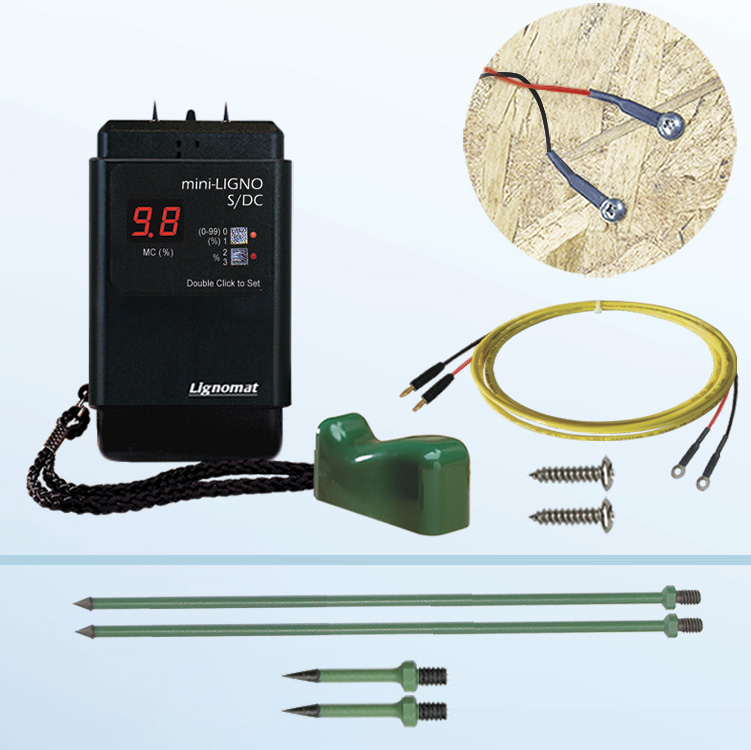The Scientific Research Behind Moisture Meters: Exactly How They Function and Why They're Crucial
The Scientific Research Behind Moisture Meters: Exactly How They Function and Why They're Crucial
Blog Article
The Ultimate Guide to Wetness Meters: A Comprehensive Overview and How They Can Save You Cash
In the realm of building upkeep, building, and various industries, the relevance of accurately gauging wetness levels can not be overstated. Moisture meters act as crucial tools in identifying and monitoring moisture web content in materials, assisting in protecting against costly problems and making certain the quality of products. Recognizing the nuances of different types of moisture meters, their applications, and the prospective cost-saving benefits they use can be a game-changer for organizations and professionals alike. Discovering just how these gadgets can not just enhance processes yet also add to monetary cost savings is a journey worth starting.
Kinds Of Wetness Meters
Various kinds of moisture meters are readily available for different applications in different sectors. One usual type is the pin-type wetness meter, which measures the electrical resistance in between 2 pins inserted into a product. This kind is ideal for wood, drywall, and other building products. Pinless wetness meters, on the various other hand, use electromagnetic sensor plates to scan a bigger location without creating damage to the material's surface area. Moisture Meter. These meters are optimal for promptly assessing moisture degrees in large locations such as floors and wall surfaces.

Infrared dampness meters measure the thermal homes of a material to identify its wetness content non-invasively, making them beneficial for applications where pin or pinless meters may not be suitable. Comprehending the various types of moisture meters offered can help sectors select the most ideal tool for their certain wetness dimension demands.

Advantages of Utilizing Moisture Meters
Wetness meters provide important benefits in accurately analyzing and monitoring moisture levels in diverse products and atmospheres. One of the primary benefits of utilizing dampness meters is the prevention of potential damages triggered by excess wetness.
In addition, utilizing moisture meters can result in increased power effectiveness. By recognizing areas with high moisture degrees, such as leakages or bad insulation, adjustments can be made to boost power preservation and minimize energy expenses. In agricultural setups, dampness meters play a crucial role in enhancing crop returns by enabling farmers to check soil wetness levels and make informed irrigation choices. Generally, the advantages of making use of wetness meters span throughout different sectors, giving cost-effective options and promoting better quality control methods.
How to Select the Right Dampness Meter
When picking a dampness meter, it's crucial to make sure that the meter is ideal for important site the details material you will be testing. Various products have differing electrical buildings that can influence wetness analyses, so selecting a meter created for your product is critical for precise outcomes. By thoroughly examining these variables, you can select a wetness meter that satisfies your needs and supplies accurate moisture dimensions for your projects.
Proper Methods for Dampness Meter Usage

Cost Financial Savings Through Wetness Meter Applications
How can the strategic use of moisture meters lead to considerable price financial savings throughout different industries? In the agriculture industry, wetness meters aid in establishing the optimum time for harvesting crops, avoiding over-drying or excess dampness that can impact the last product's top quality.
Similarly, in building, look at this website moisture meters assist prevent pricey damages by spotting moisture levels in structure materials, such as wood or concrete, which can cause structural issues otherwise resolved immediately. By identifying problem locations beforehand, contractors can take restorative actions to stay clear of comprehensive repair work or substitutes, inevitably saving time and money.
Additionally, in the food handling industry, dampness meters are essential for checking product quality and ensuring conformity with safety and security regulations. By properly determining moisture web content in food products, manufacturers can prevent wasting, keep freshness, and minimize waste, resulting in considerable cost financial savings. Overall, the tactical application of dampness meters is a beneficial investment that can bring about substantial price reductions and improved performance throughout numerous sectors.
Conclusion
In conclusion, wetness meters are beneficial devices for spotting and gauging moisture degrees in different materials. By making use of the best wetness meter and complying with appropriate strategies, customers can successfully stop costly problems created by excess dampness.
Wetness meters serve as important tools in detecting and checking moisture material in products, assisting in avoiding pricey problems and making certain the top quality of items. Infrared dampness navigate to this website meters measure the thermal homes of a product to establish its dampness web content non-invasively, making them valuable for applications where pin or pinless meters may not be suitable.Dampness meters use very useful benefits in properly keeping track of and assessing wetness degrees in varied materials and atmospheres. In agricultural settings, wetness meters play an essential duty in optimizing plant yields by enabling farmers to monitor soil wetness levels and make informed watering choices.In conclusion, wetness meters are valuable tools for identifying and determining dampness levels in different materials.
Report this page